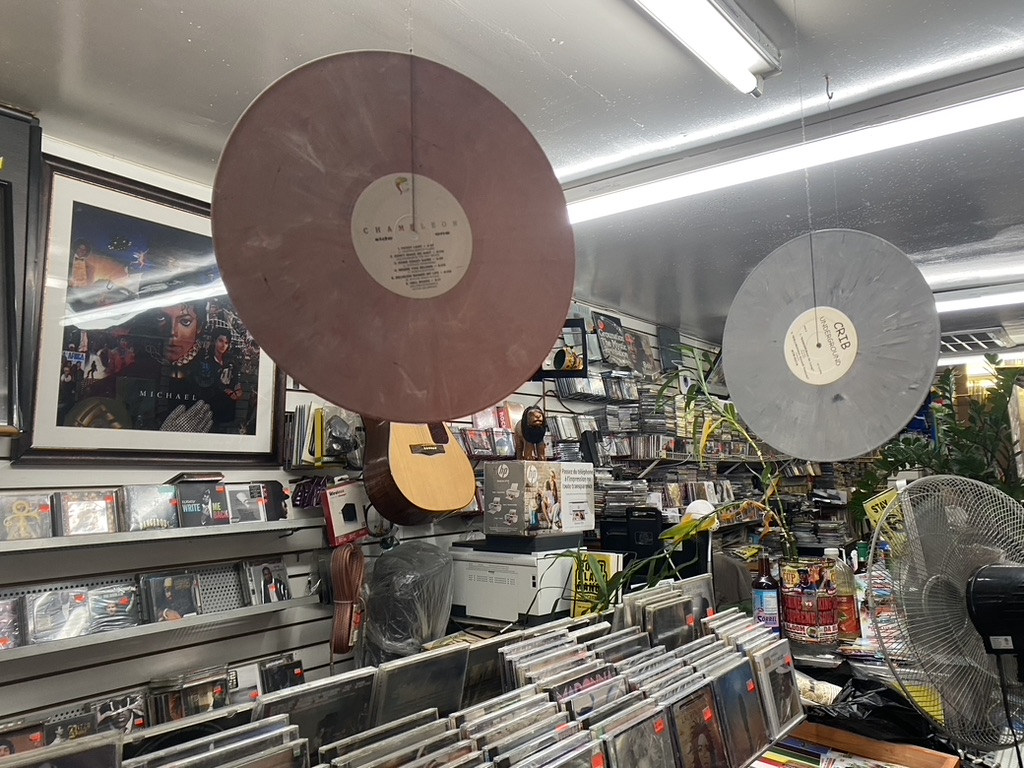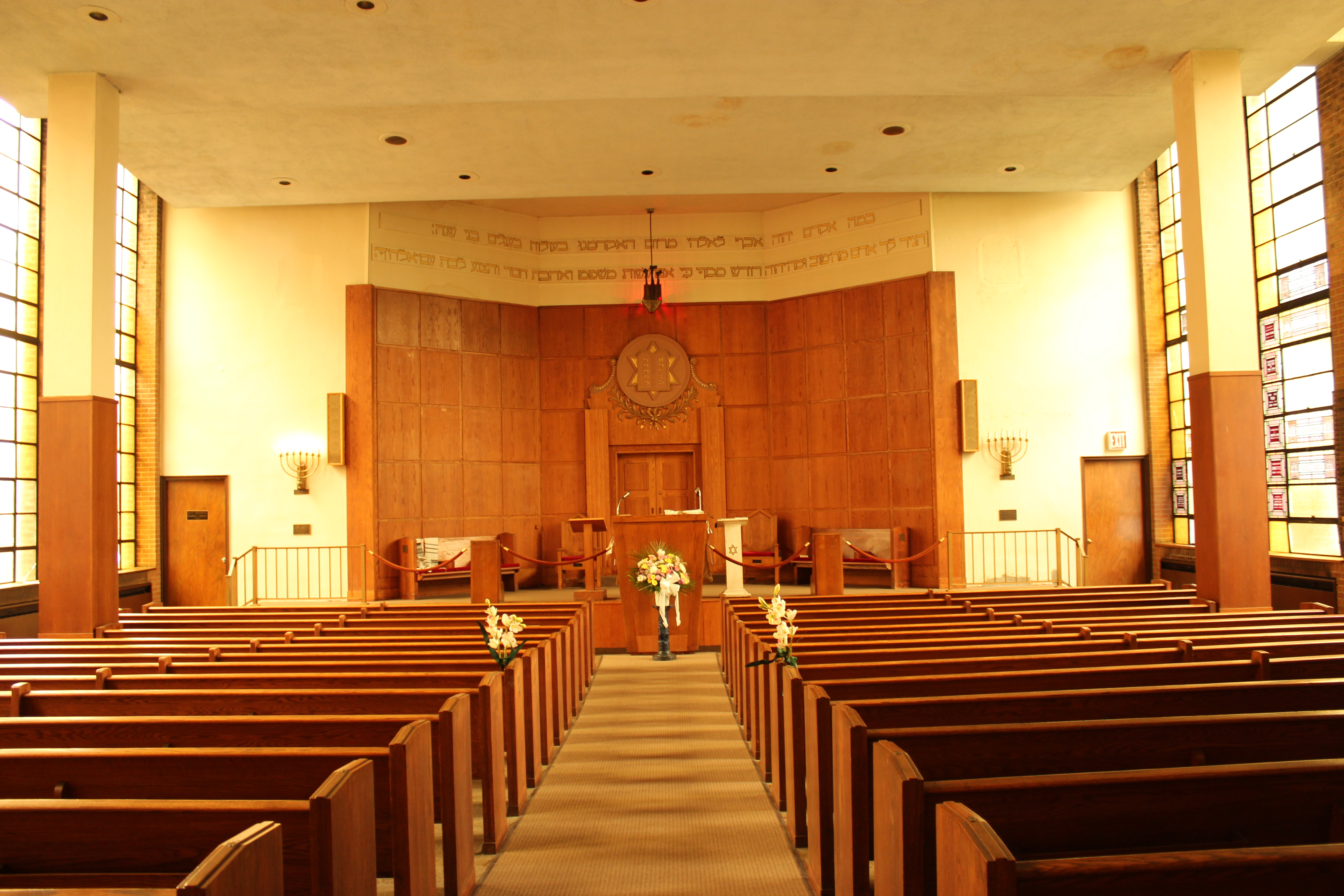
Reggae music overpowers light chatter in a room where music legends cover the walls; Michael Jackson posters, Taylor Swift CDs and Lauryn Hill vinyl records flank a narrow aisle weaving between the rows of entertainment. Baskets filled with incense and hair conditioners sit near the cash register as Williamsbridge’s older residents chat on the shady sidewalk underneath a rumbling 2-train. Friends, neighbors and family joined together to celebrate the life of Earl Moodie, owner of Moodies Records, who died last September at the age of sixty-nine.
“He opened the shop, the rest is history,” said his son, Earl Moodie Jr.
Moodies Records, a small music store in Williamsbridge, has persisted despite the shift from vinyl to digital, and in the face of big brands like T-Mobile moving into the storefronts that line White Plains Rd. and Westchester Ave.
The locally owned Records-N-Stuff and Tony Ryan Records & Electronics have both disappeared – just two of the Bronx vinyl shops that went out of business in the early 2010s. But Moodies is still selling records.
Against a wave of closing independent shops, Moodies holds the line.
Entering an online search for “record shop in the Bronx” or “Bronx music store” yields two results: Moodies and Cholo’s Record Shop. Cholo’s sits at the very southern tip of the Bronx, a mere stone’s throw from Manhattan. Looking up other music shop names, like Cam DVD & Music World, lead to links and contact information for Moodies, not even showing the closed store.
While streaming subscriptions continue to grow–$5 billion according to the Recording Industry Association of America’s mid-year report – the problem facing record shops isn’t a lack of interest in vinyl. In fact, record sales have increased over 4000% in the past decade, from one million units sold in 2009 to 41.7 million units sold in 2021, according to statistica.com.
Independent record stores scattered throughout the country comprised around 52% of the market share in 2022, most often selling rock and hip-hop albums. Major companies like Amazon, Hot Topic and Urban Outfitters, nonetheless, hold a tight grip on the vinyl market.
But platforms like Amazon fail to highlight the sense of community that independent record stores provide. While algorithms can offer what you “may like,” the suggestion is a result of data and analytics, not a person who can “analyze the soulfulness of your music choices,” said Edward Bilous, Founding Director of the Center for Innovation in the Arts at the Juilliard School.
Vinyl, as a medium, shows a “breakdown of the artistic choice – the tender loving care – that was put into the record making process,” Bilous said.
The word album as we know it dates back to the 19th century, meaning a “collection of individual works with a certain structure in mind,” he said. This structure became less important in the new digital music marketplace, where someone can replay the one song that they’d like to hear without having to listen to the entire body of musical work.
“I think that that’s missed in the digital world,” said Bilous, “I don’t think there will be a day where it will be impossible to find vinyl.”
Moodies Records opened over forty years ago in 1973, gaining popularity in the late 1980s. The shop instilled itself in the community, hosting meet and greets with artists, gatherings and performances. Stars like Bob Marley, Slick Rick and Ashanti found their way to the store, which sits among the crowds of businesses on White Plains Rd. Critic Anthony Bourdain featured the shop on an episode of his television show Parts Unknown, highlighting Moodies as a building block for hip-hop and reggae. Pierre Barclay, Moodie’s nephew, described the store as “the beating heart” of reggae.
“Music helps out. It deals with a lot,” Barclay said. He explained that Moodies aims to relieve people of their worries, even if only for the length of an album. This mission for consumers to practice self care is why the store expanded to selling a few skincare and haircare products. Moodies is for the mind and body.
Earl Moodie began his career performing in a band, the Stepping Stones. His son said that his father “poured everything into” music which was “his life,” echoing the store’s motto, “music is life.” In Williamsbridge, Moodie was more than just an artist and tastemaker.
“It’s what he was meant to do,” reflected Moodie Jr., explaining that Moodie was “very smart” but chose not to “go corporate.” With help from fellow music enthusiast and New York City reggae icon Brad Osbourne, Moodie began his nearly fifty year career at the record store. That the store still remains speaks both to his skills as a businessman and his immersion in the neighborhood and music industry.
Moodie was described by family and close friends as “a man of the people” and “a really good guy.” Some neighbors trusted him enough to hold onto their savings as though he were a bank. Moodie Jr. believes that his father has “good karma.” One comment on a Facebook post announcing Moodie’s death reads, “he was a true pillar of the community.”
As for other record shops in the Bronx, “all of them are gone,” said Barclay.
“As long as we got vinyl, we’ll be here.”




